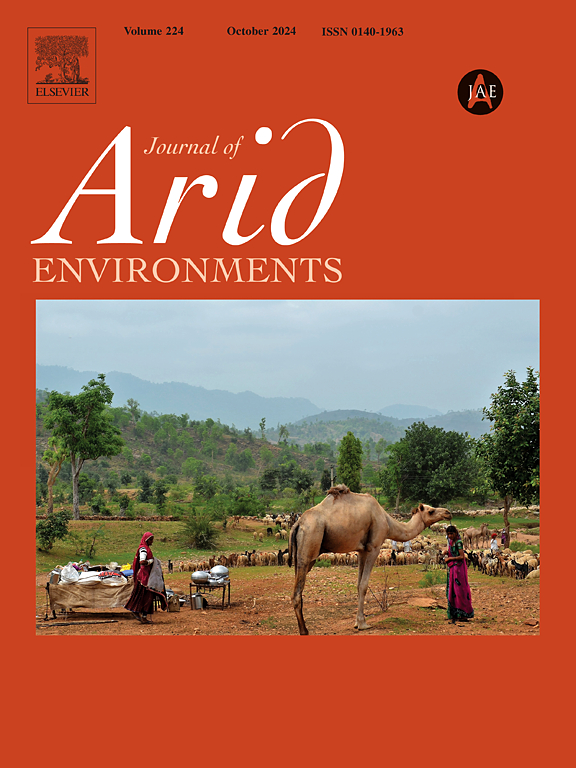Importance of birds and bats in the diet of the striped polecat (Ictonyx striatus) in archaeological heritage Old Dongola (Sudan)
IF 2.6
3区 环境科学与生态学
Q2 ECOLOGY
引用次数: 0
Abstract
Deserts present unique challenges to the survival of various animal species, particularly mammals, which must develop special adaptations to thrive in these harsh environments. However, some species may take advantage of human-induced changes, such as the development of infrastructure, even established in ancient times. Then, this study examines the diet composition of the striped polecat (Ictonyx striatus) at the archaeological site of Old Dongola in Sudan. Through non-invasive faecal analysis, we identified 205 prey items from 139 scats, including insects, birds, and bats. Our findings suggest that the striped polecat's predation on birds and bats could help mitigate damage to archaeological sites caused by guano. These results highlight the dietary plasticity of the striped polecat and its potential role in preserving archaeological heritage by naturally controlling pest populations.
考古遗产老东戈拉(苏丹)中的条纹山猫(Ictonyx striatus)食物中鸟类和蝙蝠的重要性
沙漠给各种动物物种的生存带来了独特的挑战,尤其是哺乳动物,它们必须发展出特殊的适应能力,才能在这些恶劣的环境中茁壮成长。然而,有些物种可能会利用人类引起的变化,如发展基础设施,甚至是在远古时代建立的基础设施。因此,本研究考察了苏丹老东戈拉考古遗址中条纹杆猫(Ictonyx striatus)的食物组成。通过非侵入式粪便分析,我们从 139 块粪便中鉴定出 205 种猎物,包括昆虫、鸟类和蝙蝠。我们的研究结果表明,条纹极猫对鸟类和蝙蝠的捕食有助于减轻鸟粪对考古遗址造成的破坏。这些结果突显了条纹极猫食物的可塑性,以及它通过自然控制害虫数量来保护考古遗产的潜在作用。
本文章由计算机程序翻译,如有差异,请以英文原文为准。
求助全文
约1分钟内获得全文
求助全文
来源期刊

Journal of Arid Environments
环境科学-环境科学
CiteScore
5.70
自引率
3.70%
发文量
144
审稿时长
55 days
期刊介绍:
The Journal of Arid Environments is an international journal publishing original scientific and technical research articles on physical, biological and cultural aspects of arid, semi-arid, and desert environments. As a forum of multi-disciplinary and interdisciplinary dialogue it addresses research on all aspects of arid environments and their past, present and future use.
 求助内容:
求助内容: 应助结果提醒方式:
应助结果提醒方式:


